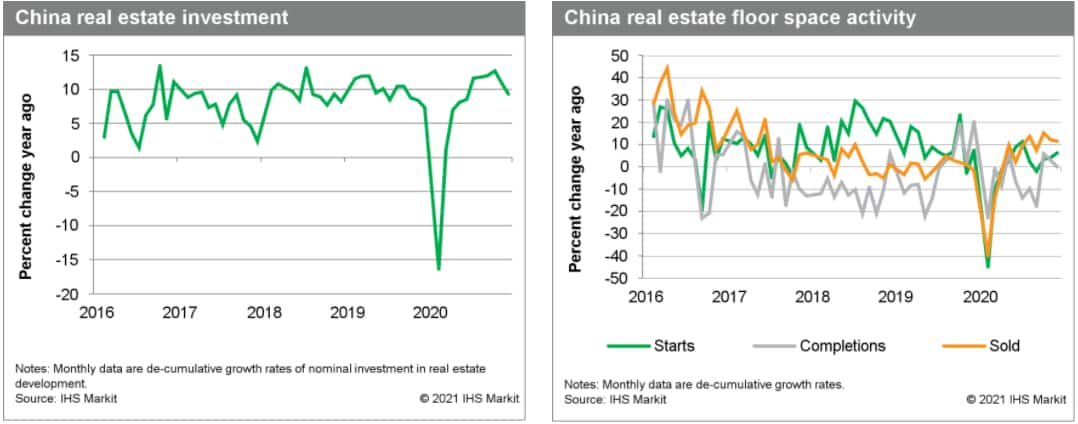The housing market has long been an important growth pillar for China. Even during the significant growth slowdown in 2020 due to the COVID-19 pandemic shock, full-year real estate development investment recorded a year-on-year (y/y) growth rate of 7%, compared with an overall fixed-asset investment growth of 2.9% y/y. Further, with real estate–related activities estimated to account for 29% of the Chinese economy[1] – including the production of property and provision of property-related services – the vulnerability of the sector has wider implications for China going beyond headline growth rate fluctuations.
A review of the performance of Chinese housing market during 2020 helps explain how policy moves since mid-2020 have increasingly tightened the financing environment for property developers. An analysis of the triggers and effectiveness of previous regulatory moves show how the recent policy announcements fall into the government’s long-term de-risking efforts for the real estate sector. An assessment of housing exposure in multiple aspects of the economy highlights existing vulnerabilities that could amplify the repercussions of a housing market shock, which makes long-term de-risking necessary going forward.
To learn more, visit Advanced Country Analysis & Forecasting.
























